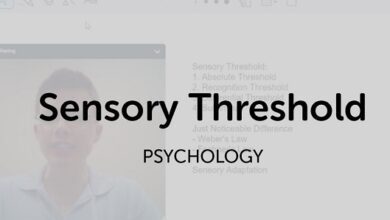Difference Between hypothyroidism and hyperthyroidism and Similarities
Hypothyroidism and hyperthyroidism
In this article we will provide you not only the difference Between hypothyroidism and hyperthyroidism but also some similairites as well along with the FAQs,
What does hypothyroidism mean?
Hypothyroidism is a disorder that affects the thyroid gland, located in the neck . The function of this gland is to produce and release important hormones for the proper functioning of the human body, such as thyroxine (T4) and triiodothyronine (T3). When there is hypothyroidism, it means that there is a considerable reduction in the T4/T3 hormones produced by the thyroid gland. These low levels can cause symptoms such as extreme fatigue, mild or severe depression, muscle pain, and hair loss. Treating yourself with appropriate supplemental medications helps maintain normal levels of T4/T3 hormones in the blood; however some people require lifelong hormone therapy to control their symptoms.
What does hyperthyroidism mean?
Hyperthyroidism is an endocrine disorder that occurs when the thyroid gland secretes too much hormone . This causes an increase in hormone levels in the body, leading to characteristic metabolic and physiological changes. The most common symptoms include excessive sweating, nervousness, fatigue, muscle weakness, weight loss for no apparent reason, and heart problems. Hyperthyroidism can also cause other less common symptoms such as bulging eyes (exophthalmos), tremors in the hands , and swollen joints. If detected early, appropriate treatment usually helps to control symptoms and prevent later serious complications.
Similarities Between Hypothyroidism and Hyperthyroidism
Hypothyroidism and hyperthyroidism are disorders that are related to the thyroid gland. Both are associated with abnormal levels of thyroid hormones in the body.
Hypothyroidism is characterized by a decrease in the hormones produced by the gland, while hyperthyroidism occurs when there is an excess of these hormones in circulation.
Symptoms of hypothyroidism include fatigue, dry skin, muscle cramps, intestinal constipation, and depression; While common signs of hyperthyroidism are extreme anxiety, involuntary tremors, excessive sweating, and insomnia.
Both conditions require medication to control proper levels of the same and improve the overall health of the patient.
Differences between hypothyroidism and hyperthyroidism
Hypothyroidism and hyperthyroidism are two disorders of the thyroid gland.
Hypothyroidism is a condition in which your thyroid gland does not produce enough hormones, while hyperthyroidism means that there are too many hormones produced by your thyroid.
Symptoms of hypothyroidism include fatigue, depression, weight gain, and trouble concentrating; symptoms of hyperthyroidism include nervousness, tremors, rapid weight loss, and rapid heartbeat.
In both cases it is recommended to see a doctor to establish an accurate diagnosis and receive appropriate treatment.
Frequent questions
What happens to a person with hypothyroidism?
Hypothyroidism is a disorder in which the thyroid gland produces too little of the necessary thyroid hormones. Symptoms include fatigue, weight gain, dry skin and hair, muscle cramps, depression, and trouble concentrating.
What causes hypothyroidism in women?
Hypothyroidism in women can cause a variety of symptoms, including tiredness, dry skin and hair, unexplained weight gain, chronic constipation, depression, and muscle cramps. Other less common symptoms have also been observed, including joint pain or decreased short-term memory.
What can people with hypothyroidism not eat?
People with hypothyroidism should avoid certain foods rich in iodine, such as shellfish, raw or undercooked eggs, kelp meal (nori), soybeans, and soybean-based products. It is also wise to limit your intake of dairy, red meat, and cruciferous vegetables such as broccoli, cauliflower, and Brussels sprouts.
What is hypothyroidism makes you gain weight or lose weight?
Hypothyroidism can cause weight gain as it reduces metabolism and slows down calorie burning. However, there are also other factors involved in weight gain (diet and exercise), so results vary from person to person.
What happens to a person with hyperthyroidism?
Hyperthyroidism is a disorder in which the thyroid gland produces too much thyroid hormone. This can cause weight gain, rapid heartbeat, palpitations, excessive sweating, nervousness, and uncontrollable shaking. Problems such as muscle weakness or joint pain may also develop.
What is hyperthyroidism and its symptoms?
Hyperthyroidism is an endocrine disorder caused by excessive production of thyroid hormone. Symptoms include increased appetite, weight loss, heart palpitations, hand tremors, excessive sweating, tiredness and fatigue, heat intolerance, and changes in menstrual pattern. Excessive irritability and restlessness or trouble sleeping may also occur.
What should I not do if I have hyperthyroidism?
It is not recommended to go on restrictive diets or use nutritional supplements without the approval of a doctor. Taking over-the-counter weight-loss medications and excessive exercise are also not recommended, as this could aggravate the symptoms of hyperthyroidism.
How can hyperthyroidism be cured?
Treatment of hyperthyroidism depends on the underlying cause. Medications to lower thyroid hormone levels in the blood, such as propylthiouracil and methimazole, may help relieve symptoms. Radiation therapy with radioactive iodine or surgery to remove part or all of the thyroid gland are other possible treatments. Follow-up by an endocrinologist is necessary to monitor general health status when hyperthyroidism is diagnosed.




